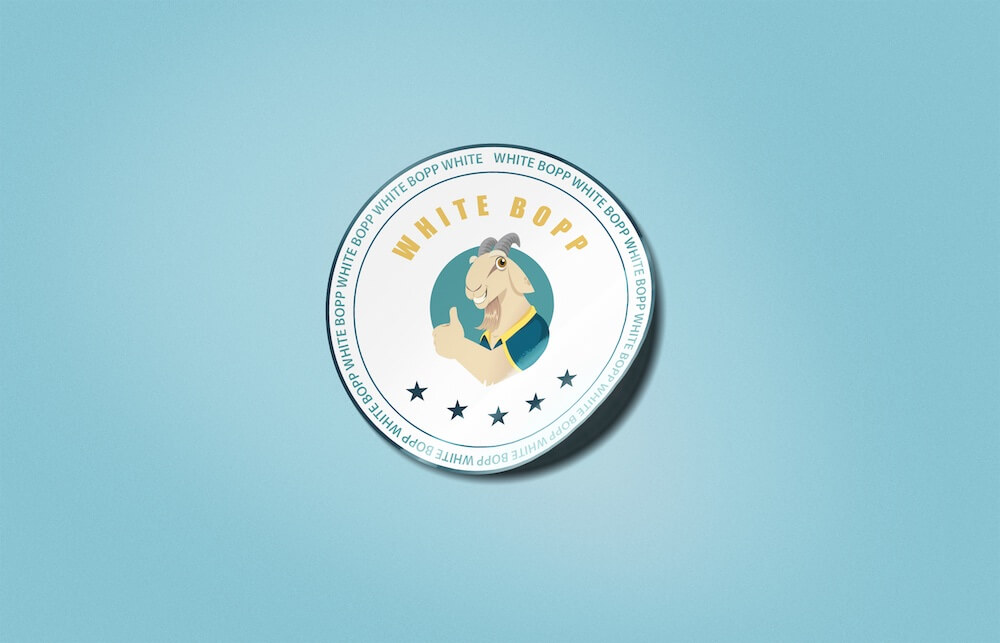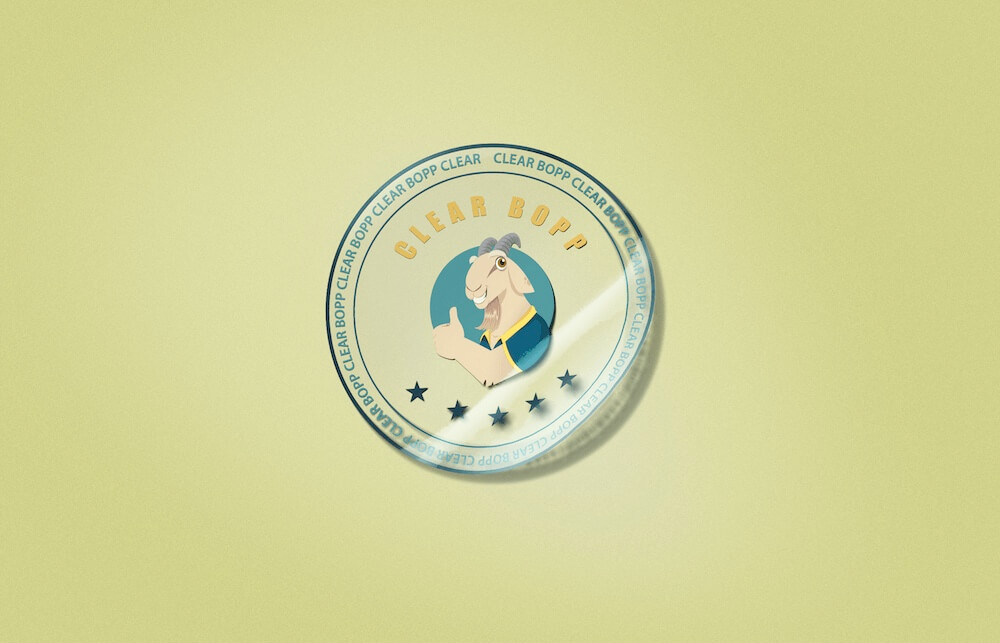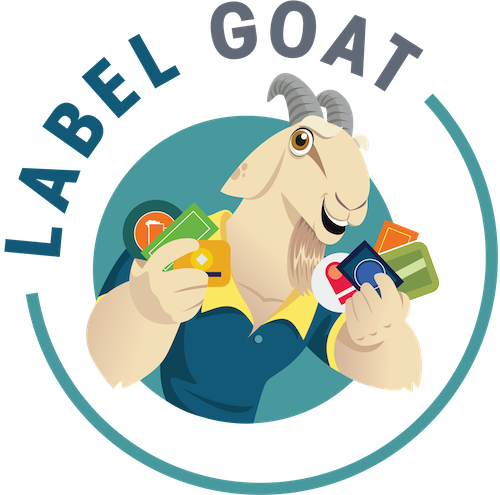Soap Labels
Soap labeling made easy! Our personalized, informative, and eye-catching labels make it easy for your brand to leave a lasting impression in the competitive market.
$1.00
Paper Types

Permanent / Removable BOPP
White BOPP (polypropylene)
- Water, oil, scratch, and tear-resistant
- Endless acrylic water-based adhesive
- Long-lasting
White BOPP Removable
- Water, oil, scratch, and tear-resistant
- Non-permanent acrylic water-based adhesive
- Long-lasting

Clear BOPP
- Water, oil, scratch, and tear-resistant
- Permanent acrylic water-based adhesive
- Long-lasting
- NO WHITE INK

White Paper
- Cost-effective
- Best for indoor use
- It can be written on
- Best used for products that do not come in contact with oil, water, or moisture
Soap Labels Overview
Soap Labels are the stickers on your soap that serve as a vital product component. They provide essential information about the brand name and logo, including a list of ingredients and information about the potential health effects. Identifying product attributes helps customers choose the soap that best suits their preferences and needs. Further, they allow customers to decide on the specific type of soap they want, whether scented or unscented, moisturizing or exfoliating. Besides the informative function, soap labels also serve as an effective marketing tool. With carefully designed logos, typefaces, and colors, soap labels can capture the attention of potential customers.
Different Types of Soap Labels
We provide two soap labels — sheet and roll. Sheet labels are printed on flat blank paper to fit your label size. They are mostly suitable for small businesses as they are affordable and economical. Roll labels, on the other hand, are perfect for companies that require bulk production. These labels are spun in a continuous spool with adhesive backing. The size of each role depends upon the size of a logo and the number of logos required. When choosing to print labels, it is essential to consider the size of your company and understand the type of labels you need.
Benefits of Soap Labels
Labels are a crucial marketing point to establish brand awareness. Soap labels allow for easy product identification, helping you stand out amongst your competitors. They generally include your logo, contact details, information about the ingredients, their before and after weight, and instructions. These specifics offering full information about the product provide the liberty of choice to your customers. They allow them to choose the preferred soap and inform them of the raw materials used, helping them identify and completely avoid allergens. A well-crafted label can help enhance your brand credibility among your users. Here are some benefits of soap labels:
Additional Uses or Features
By listing the different uses or features on the label, you can highlight the product’s versatility and encourage consumers to explore its full potential. For example, a soap label might indicate that the soap is effective for removing stains from clothing or as a gentle makeup remover. This information empowers consumers to utilize the soap in different scenarios, expanding its value beyond simple handwashing or showering. The label acts as a guide, suggesting innovative ways to incorporate the product into daily routines.
Allergen warnings
Soap labels generally include detailed information about the raw materials used when manufacturing the product. They also include warnings about flammability, skin irritations, or other risks. They allow the users to be informed of the ingredients in the soap, identifying the potential allergens and avoiding them completely.
Batch tracking
Soap label comprises specific information about the product, like a batch number and date of production. Ideally, This information helps trace a product’s origin, composition, and quality. In the case of complaints, it also helps address customer concerns effectively, allowing for easy disposal of defective or expired products.
Product certifications
Various certifications, such as organic, cruelty-free, fair trade, or eco-friendly certifications, require specific information and labeling requirements to be met. The labels show that the soap has undergone the necessary testing, inspections, or audits to meet the certification standards. They help establish brand credibility among the customers in the market.
Social responsibility information
Soap labels with social responsibility information promote transparency, support sustainability, and encourage a more socially conscious marketplace. By including details on ethical sourcing, environmental impact, social initiatives, animal welfare, health and safety, and consumer education, companies demonstrate their commitment to responsible practices, which, in turn, helps establish a strong brand image among the customers.
Frequently Asked Questions
Can I trust the “natural” or “organic” claims on soap labels?
While soap labels claiming to be “natural” or “organic” can provide some insight into the product’s ingredients and manufacturing process, it is essential to approach these claims with caution and conduct further research. In the United States, to label products as natural or organic cosmetics, they must be certified by the United States Department of Agriculture (USDA). Organic products are typically less processed and free from artificial or processed ingredients. However, there are no specific guidelines from the USDA or FDA regarding marketing products as organic. For trustworthiness, it is advisable to look for recognized third-party certifications like USDA Organic or Ecocert. They have rigorous criteria for organic products.
Is there a difference between “antibacterial” and “regular” soap?
Yes, there is a significant difference between antibacterial and regular soap. Regular soap, also known as non-antibacterial, works by mechanically removing dirt, oils, and germs from the skin through lathering and rinsing. It does not contain specific antibacterial ingredients designed to kill or inhibit the growth of bacteria. On the other hand, antibacterial soap contains additional active ingredients, triclosan or benzalkonium chloride. These ingredients are actively used in antibacterial soaps to kill or reduce the number of bacteria on the skin due to their antiseptic properties. These antibacterial agents are formulated to target and eliminate a broad range of bacteria, viruses, and fungi.
Are soap labels waterproof or water-resistant?
Soap labels are typically designed to be water-resistant rather than fully waterproof. While they are made to withstand exposure to water and moisture to some extent, they may not be completely impervious to water. It means that soap labels should be able to withstand occasional contact with water without smudging or losing their legibility. However, if soap labels are continuously submerged in water or exposed to excessive moisture for extended periods, they may eventually degrade or become less adhesive. At Label GOAT, we offer Clear BOPP Label, which is water, oil, tear, and scratch resistant, ensuring the longevity of your label.
Are soap labels required to have specific information in different countries?
Yes, soap labels are required to provide specific information, which varies across different countries. Common mandatory details include the product name, net weight, manufacturer/distributor information, directions for use, and safety warnings. In the EU, soap labels must comply with Cosmetics Regulation (EC) No 1223/2009 and may require the “CE” mark. The US FDA regulates accurate ingredient listing using the INCI system. Australia’s TGA may require the ARTG logo, while Canada’s Health Canada requires the display of NPN or DIN for certain soap products. These country-specific requirements aim to ensure compliance with local regulations, provide accurate product information, promote consumer safety, and prevent misleading claims.




